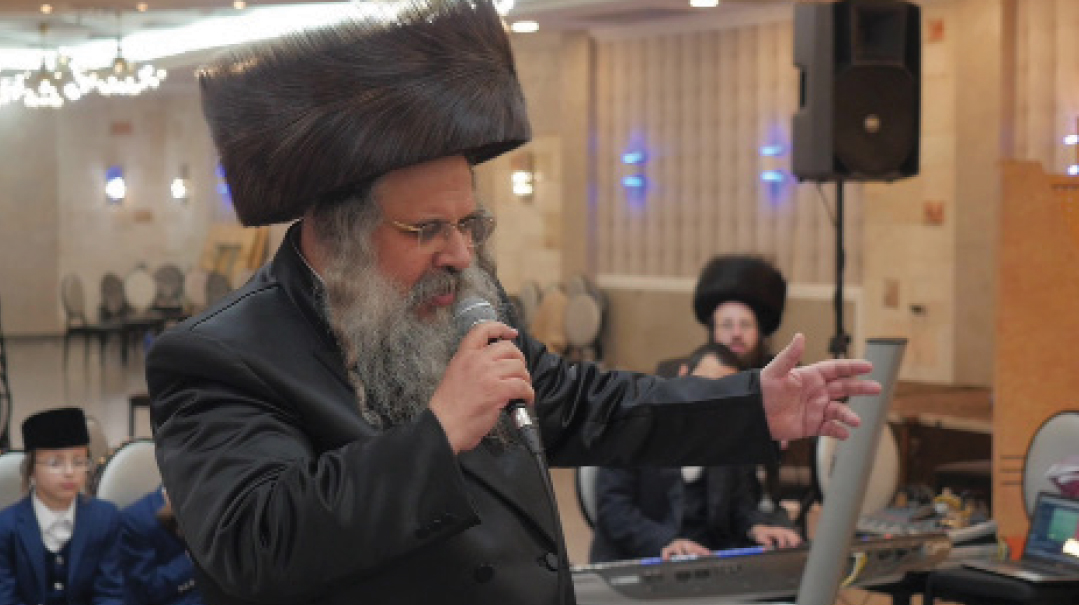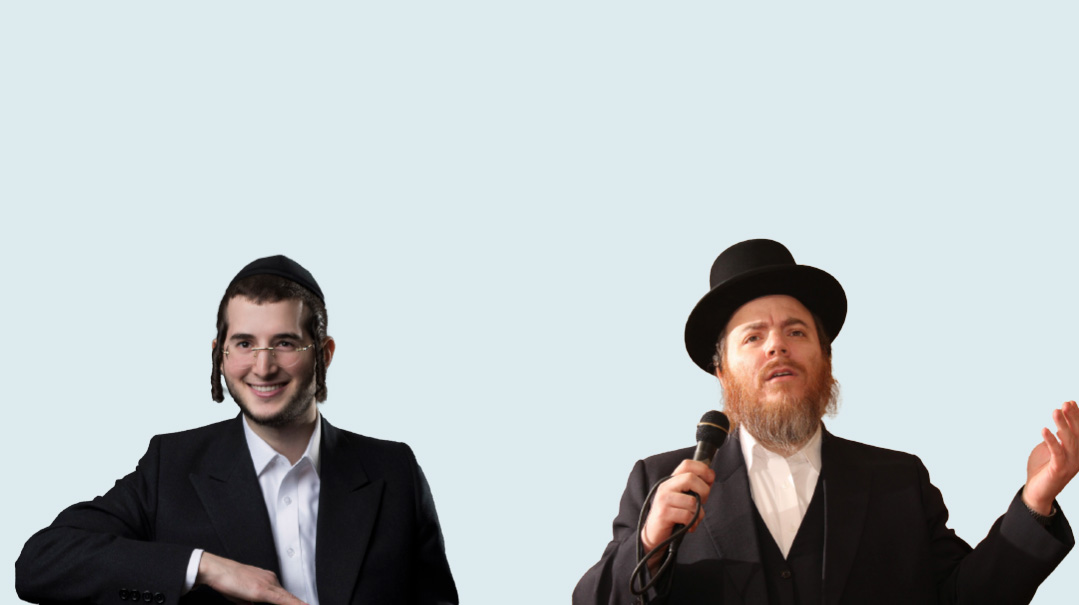The Last Dance: Reb Mendel Yakub
| April 5, 2020Today the custom of mitzvah tantz is still widespread and has even reached new communities. We caught up with five top international badchanim, who share their experiences and perspectives from the very heart of the Jewish wedding

Reb Mendel Yakub
Based in Bnei Brak
Badchan for 30-plus years
MY BIGGEST CHALLENGE ON THE JOB
Travel abroad is not easy. I try to travel the day before, but many things are out of my control. Delays happen, strikes happen, and sometimes you arrive just in time to put your little suitcase on the stage next to the musicians’ equipment and start to sing. Once you accept a booking, you have to be there, at any price, and in a good mood, whatever it takes out of you. The family mustn’t feel any of your stress.
MY MOST UNUSUAL REQUEST
Often, a mechutan asks me not to praise him, or at least not excessively. But once, a father came to me and told me that under no circumstances am I to include any praise about him at all when I call him up. He seemed so determined that I asked him why. He replied, “Because if you speak highly of me, then you will speak highly of the other side too, and I can’t stand hearing that. The mechutan is a real rogue, and I am not moichel him, so just don’t say any praises of anyone!” I’ve come across ill-feeling within families occasionally, but I can’t hurt people by taking them down or embarrassing them. As a badchan, maybe I can give someone a little more honor than he deserves, but I can’t dishonor a person. You can’t dance on someone’s spilled blood.
MY MOST EMOTIONAL MITZVAH TANTZ
Every chasunah, every new home built, is emotional, although there are certain circumstances that stand out. I did a wedding in Bnei Brak where the mechutan, Rav Avrohom Lemberger, suddenly took ill and passed away three hours before his son’s chuppah. A vast levayah was held that day instead of a wedding, and the chasunah was a week later..
Then there was the baby from Boston. Years ago, I was in Boston with my father who was hospitalized there, and I met a family from Yerushalayim whose tiny baby had a heart defect and needed a specialist and very costly treatment. To offer them some good cheer, I said that I would be delighted to badchan at the child’s chasunah im yirtzeh Hashem. Nineteen years later, they called me to the wedding in Yerushalayim — the tiny, frail, baby from Boston was getting married.
Another time, I was in the emergency room at night with a sick child, and someone asked me to go up to the oncology ward to cheer up a 12-year-old girl and her parents. The girl was in isolation but her parents were outside, and she watched through the glass. It was parshas Beshalach, and her name was Devorah, so I began a grammen with “Vatashar Devorah” — the song of Shiras Devorah, that week’s haftarah, and I told them I would finish it at her chasunah. Baruch Hashem, I did. I saw her ill, and I saw her healed.
MY ADVICE TO NEW BADCHANIM
There are two types of badchanim: the ones who have all their lines prepared three weeks before and the ones who prepare in the last few hours before the mitzvah tantz. But either way, you have to get into the brain of the mechutanim, to be able to understand different types of people.
MY ADVICE TO MECHUTANIM
Almost every mechutan today wants to shorten the mitzvah tantz and cut down on schlepping. A rebbe has gabbaim there to keep things running smoothly. To everyone else, I say, appoint someone from the family to prepare the chairs and to call in the kallah so that the mitzvah tantz can begin — if no one is told to do this, it can take three hours until everyone finally sits down. Second point, most people call up all the uncles and brothers to dance together. But then, when the kallah drops the gartel and the chassan gets up to join them, each one dances separately with him again. This can take 20 minutes, and you lose all the time you have gained. I say, there will be a week of sheva brachos, let them all come along and dance with him separately then.
HOW I USE HUMOR
Humor is an important tool to bring joy to the chassan and kallah. But recently, the listeners, especially the kallah and the ladies, have gotten frummer. They’re less into jokes, and they are more focused on tefillah and hisorerus.
A NEAR-DISASTER
I once left a wedding in Eretz Yisrael at six a.m. and went straight to the airport to fly to New York for a big rebbishe chasunah. I had a fever and wasn’t feeling too great, so when I arrived at my hotel, I asked them to switch off my phone and to wake me at midnight. My plan was to be at the mitzvah tantz at 1 a.m. Suddenly, I woke up, to see that the clock said 2:30 a.m. I was in total panic. I’m a badchan, not a cheder boy who can say the next day that he couldn’t come because he had a stomachache. I knew there was another badchan who had been invited by the other side, so I thought maybe he’d filled in, and I would arrive in time just to call up chassan and kallah. I could just imagine how upset the mechutan would be with me.
I went down to the lobby, called a taxi, and begged him to rush to the hall. When I arrived, I saw people leaving and panicked further. Then I walked in. The Rebbe was still giving out l’chayims in the middle of the seudah.
HOW I BADCHENED FOR THE REBBE
I’ve badchened for many rebbes, baruch Hashem. When the mitzvah tantz is in front of a big chassidus, you feel relieved when it’s over. It’s not a simple job. One chasunah that stands out was for Rav Moshe Aryeh Freund of the Eidah Hachareidis. Rav Moshe Aryeh was married before the war and lost eight children in the Holocaust, Rachmana litzlan. Much later in life, he remarried a lady who had a child, and he raised him and married him off like his own son. The wedding was in 1991, and Rav Moshe Aryeh was around 90 then. He asked me to serve as badchan. I think everyone present was very moved. At one point, a gabbai came to him with a towel to wipe his perspiration and tears. He waved it away. He said, “Leave it — these are from a mitzvah.”
(Originally featured in Mishpacha, Issue 806)
Oops! We could not locate your form.












